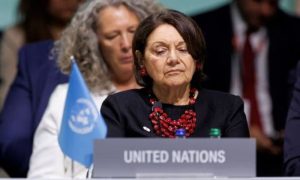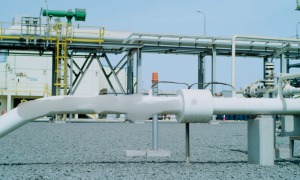Prime Minister Shehbaz Sharif’s five-day visit to China is not surprising at all, given that Gulf countries especially Saudi Arabia, as well as, China are typically among the first destinations for any newly elected Prime Minister due to their close strategic partnerships with Pakistan.
Having already visited Saudi Arabia and the UAE, it was only natural that China would be next. The significance of this visit cannot be overstated, especially as it comes at a time when Pakistan is grappling with a dire economic situation and urgently needs to stimulate economic activities. Additionally, the regional context marked by threats of terrorism from Afghanistan and the potential re-election of extremist and belligerent like Narendra Modi in India presents a shared challenge for both Pakistan and China.
Viewing the visit in the regional context is essential. China is coming up with investments in Afghanistan. The war-torn country presents both opportunities and risks. China can leverage its influence to encourage Afghan authorities to take effective action against terrorist elements, which is crucial for regional stability.
Recently, Pakistan has shared evidence of Afghan elements’ involvement in the killing of Chinese nationals in Bisham. This incident is expected to be a critical point of discussion during Sharif’s meetings with the top Chinese leadership. It is important that the two sides develop a joint strategy to counter the threats originating from Afghanistan, which pose risks not only to Pakistan but also to other countries in the region.
Regarding India, the potential re-election of Narendra Modi presents a scenario where his government might continue its hostile policies towards both Pakistan and China. Modi’s anti-China stance, bolstered by support from the United States, necessitates stronger cooperation between Pakistan and China in security and defense.
This cooperation is vital not only to counter terrorism but also to thwart India’s hegemonic ambitions in the region. Enhanced security and defense collaboration will help both nations safeguard their interests and maintain regional stability.
Economic cooperation forms a crucial aspect of the PM’s visit. The China-Pakistan Economic Corridor (CPEC) is a cornerstone of this cooperation. Initially dubbed as a game-changer for the region, CPEC had seen progress in power and road infrastructure projects, but the development of Special Economic Zones (SEZs) has been slow.
Of the nine SEZs planned in the 2015 CPEC framework, none have been completed, and work is ongoing on only four. Revitalizing CPEC and expanding cooperation to pivotal sectors such as agriculture, industries, IT, energy, and mines and minerals is imperative for Pakistan’s economic revival.
According to the World Bank, nearly forty percent of Pakistan’s 241 million people live below the poverty line,. Although inflation has decreased from a devastating 40 percent to around 17 percent, economic conditions remain challenging.
An opinion poll conducted before the national elections in February indicated that nearly 70 percent of Pakistanis believe their economic condition will continue to worsen. In this context, foreign investment, particularly from China under the CPEC framework, is crucial to addressing these economic challenges and stimulating growth.
Both civilian and military leadership in Pakistan are actively seeking foreign investments to bolster the economy. Chinese investments are particularly significant due to their potential to trigger economic activities and address critical challenges. We are confident that the Special Investment Facilitation Council (SIFC) will serve the purpose of eliminating bureaucratic hurdles that have impeded the progress of CPEC projects. Ensuring the protection of Chinese nationals and investments in Pakistan will be key to attracting investments across multiple sectors.
Sharif’s visit is also a testament to the deep-rooted and resilient friendship between Pakistan and China. This ironclad relationship is characterized by high-level exchanges and dialogue, which have stood the test of time. The upcoming discussions are expected to set the future trajectory for Pakistan-China friendship, reinforcing their strategic partnership.
Chinese Foreign Ministry spokeswoman Mao Ning in a statement reiterated the strength of the China-Pakistan relationship, describing it as an all-weather strategic partnership and a friendship as solid as a rock and as stable as a mountain. This visit, therefore, serves not only as a reaffirmation of their close ties but also as a strategic move to enhance cooperation in various fields.























